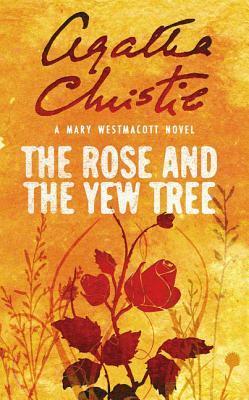What do you think?
Rate this book


224 pages, Paperback
First published January 1, 1947
a bad film is exactly what history really isAfter publishing her first mystery novel in 1920, Agatha Christie wanted the freedom to experiment with her writing. Under the pseudonym Mary Westmacott, Christie wrote six novels from 1930 to 1956.
"To love anyone," I said, "is always to lay upon that person an almost intolerable burden."
"God save us from the cranks! It's really remarkable the amount of suffering a really high-minded idealistic crank can inflict on a decent law-abiding country."
The last thing you want in an election is a lot of people who think things out and really use their heads.
"We used to have gentlemen in politics. Precious few of them. I wish this chap was a gentleman, but he isn't, and there it is. If you can't have a gentleman, I suppose a hero is the next best thing."
[Lady St. Loo and entourage] were, you see, exactly right to have come out of St. Loo Castle. They were pure fairy story. The Three Witches and the Enchanted Maiden.
I pounced on that and told her she was illogical. She had just said that to fall in love with John Gabriel would be enjoyable.
‘Not to me,’ said Teresa. ‘Because I resent—and have always resented—feeling emotion.’
‘Yes,’ I said thoughtfully. ‘I believe that’s true. But why? I can’t understand that.’
‘And I can’t explain.’
‘Try,’ I urged.
‘Dear Hugh, how you like to probe! I suppose because I have no instinct for living. To feel that my will and my brain can be entirely swamped and overridden by emotion is insufferable to me. I can control my actions and to a large extent my thoughts—not to be able to control my emotions is galling to my pride—it humiliates me.’
The moment of the rose and the moment of the yew-tree | Are of equal duration.
~ T.S. Eliot, Four Quartets

